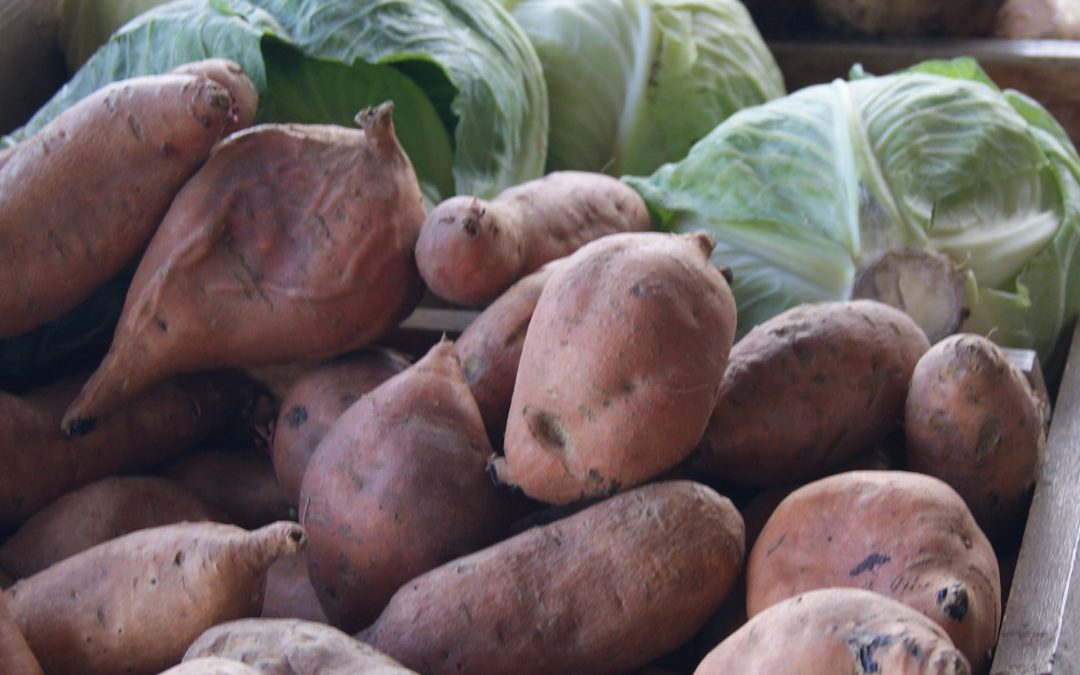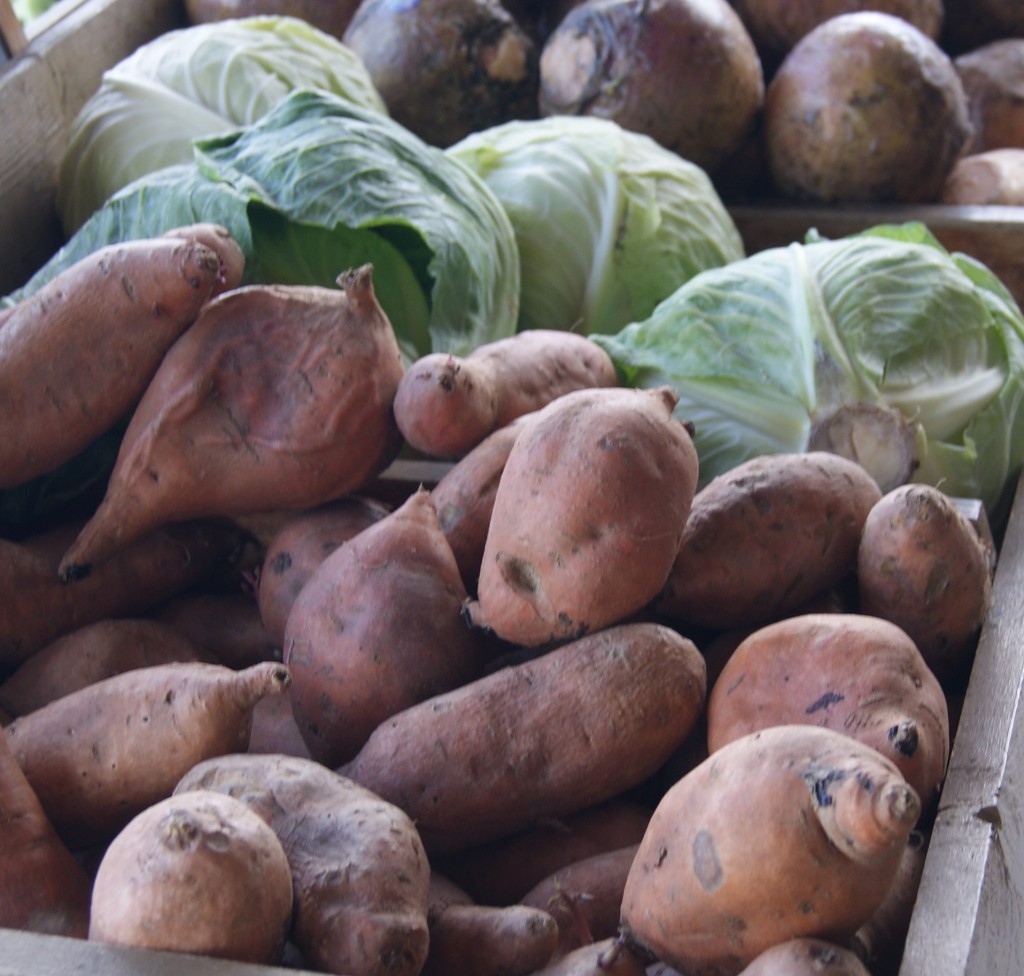
by Taylor Vandiver | Feb 25, 2014
So you have alkaline soil… What next?
Throughout the Panhandle, a common problem that often arises is finding a way to raise soil pH. This is due to the fact that we often encounter sandy, acid soils in this region. An often overlooked issue is explaining the process of gardening in a soil that tends to be more alkaline in nature.
Soil pH is measured using a scale from 0 to 14. On this scale, a value of 7 is neutral, pH values less than 7 are acidic, and pH values greater than 7 are alkaline. Soil pH directly affects the growth and quality of many landscape plants. Extreme pH levels can prevent certain nutrients from being available to plants. Therefore, a high pH may make it difficult to grow certain plants.
Often alkaline soils occur in the home landscape as a result of calcium carbonate-rich building materials (i.e., concrete, stucco, etc.) that may have been left in the soil following construction. Soils that contain limestone, marl or seashells are also usually alkaline in nature. There are a few measures that can be taken in order to combat high pH. Incorporating soil amendments containing organic material is the most common method implemented to reverse alkalinity. Peat or sphagnum peat moss is generally acidic and will lower pH better than other organic materials. Adding elemental sulfur is another common practice. A soil test will need to be performed often in order to add the correct amount of sulfur to reach an optimal pH level.
Lowering the pH of strongly alkaline soils is much more difficult than raising it. Unfortunately, there is no way to permanently lower the pH of soils severely impacted by alkaline construction materials. In these circumstances, it may be best to select plants that are tolerant of high pH conditions to avoid chronic plant nutrition problems.
Some plants that will tolerate alkaline soils:
-
Shrubs
- Glossy Abelia (Abelia Xgrandiflora)
- Sweet Shrub (Calycanthus floridus)
- Flowering Quince (Chaenomeles speciosa)
- Burford Holly (Ilex cornuta ‘Burfordii’)
- Indian Hawthorne (Rhaphiolepis indica)

Firebush is wonderful butterfly attractant. Photo courtesy of UF/IFAS.
-
Perennials
- Larkspur (Delphinium carolinianum)
- Pinks (Dianthus spp.)
- Firebush (Hamelia patens)
- Plumbago (Plumbago ariculata)

Zinnias come in a variety of colors, shapes and sizes. Photo courtesy of UF/IFAS.
-
Annuals
- California Poppy (Eschscholzia californica)
- Zinnias (Zinnia spp.)
- Cosmos (Cosmos bipinnatus)

by Eddie Powell | Jan 27, 2014

A bountiful harvest
Every winter, many Florida homeowners enjoy growing their own vegetable plants. It is definitely cheaper to buy vegetable seeds than vegetable transplants, and some vegetables grow better when direct seeded.
One factor to take into consideration when planning a vegetable garden is that each vegetable has a different germination response to temperature. Some seeds germinate best under low soil temperature while other respond best under high soil temperatures.
When planting vegetable seeds, remember that cool season crops, such as cabbage, turnips, and cauliflower, will perform best under cooler soil conditions.
The key to getting the highest seed germination rate is to match the correct soil temperature to the vegetable seed of choice.
Below is a listing of correct soil temperatures needed for vegetable seed germination.
MINIMUM Soil Temperature for Germination in Degrees Fahrenheit
- 32- Endive, Lettuce, Onion, Parsnip, and Spinach
- 40 -Beet, Broccoli, Cabbage, Carrot, Cauliflower, Parley, Pea, Radish, Swiss Chard, and Celery
- 50-Asparagus, Sweet Corn, Tomato, and Turnip
- 60-Lima bean, Snap Bean, Cucumber, Okra, and Pepper
- 65-Eggplant, Muskmelon, Pumpkin, Squash, and Watermelon
OPTIMUM Soil Temperature for Germination in Degrees Fahrenheit
- 70-Celery, Parsnip, and Spinach
- 75-Asparagus, Endive, Lettuce, and Pea
- 80-Lima Bean, Carrot, Cauliflower, Onion, Radish, Tomato, Turnip
- 85-Snap Bean, Beet, Broccoli, Cabbage, Eggplant, Parsley, Pepper, Sweet Corn, and Swiss Chard
- 95-Cucumber, Muskmelon, Okra, Pumpkin, Squash, and Watermelon.
MAXIMUM Soil Temperature for Germination in Degrees Fahrenheit
- 75 -Celery, Endive, Lettuce, and Spinach
- 85-Lima Beans, Parsnip, and Pea
- 95-Asparagus, Snap Bean, Beet, Broccoli, Cabbage, Carrot, Cauliflower, Eggplant, Onion, Parsley, Pepper, Radish, Swiss Chard, and Tomato
- 106-Cucumber, Muskmelon, Okra, Pumpkin, Squash, Sweet Corn, Turnip, and Watermelon
by | May 10, 2012

Eddie Powell
Extension Horticultural Courtesy Agent I
Walton County
pep5@ufl.edu
With spring in full swing many Florida homeowners are gearing up to grow their own vegetables. The most frequently asked question this time of year is, “why do I need to fertilize my soil?” The answer is simple – – not all nutrients are present in the right amounts to support good plant health. North Florida is a prime example of an area lacking certain nutrients, since the soils in this area are generally infertile and acidic. Therefore, ample amounts of lime and fertilizer must be applied to the soil for adequate plant growth. If this is not done then the crops will suffer from inadequate plant growth and food supply.
Most vegetable crops grow and perform best at a pH range, 6.0-7.0. A soil sample must be taken to determine soil pH. Feel free to bring one of those samples by your local University of Florida Extension office for your soils pH results. Now if the pH extends far below or above this range, then crop productivity will be significantly reduced. This happens because the crop cannot utilize the fertilizer properly. In other words, this causes the plant to use too much of some nutrients (like manganese, zinc, and iron) that are required in very small amounts and too little of some nutrients (like nitrogen, phosphorus, and potassium) that are required in larger amounts. The plant system becomes upset so to speak and does not function well and some plants may even die.
To avoid having your crop suffer because of a lack of fertilizer, contact your local University of Florida Extension Agent and ask he/she to help you select the best kind of fertilizer for your crop. After you have selected the correct fertilizer, make sure to ask your agent to assist you with following: to figure the correct amount to be applied to the area where you plan to grow your vegetable crops and also how to apply the fertilizer to the soil so that your plants will use it properly for an excellent crop yield.
Things to remember:
To keep your soil pH range between 6.0 -7.0 so that your crop can uptake the fertilizer properly and make sure to apply the correct amounts of fertilizer to the soil so that your plants will not suffer but produce high quality produce.






